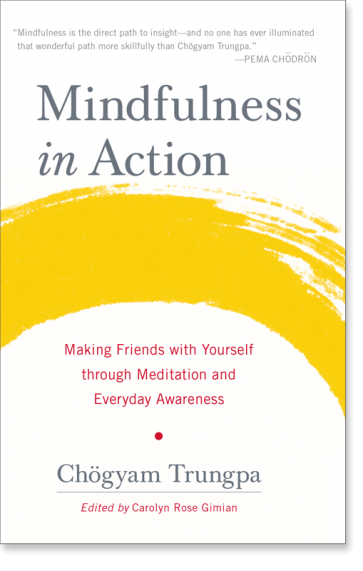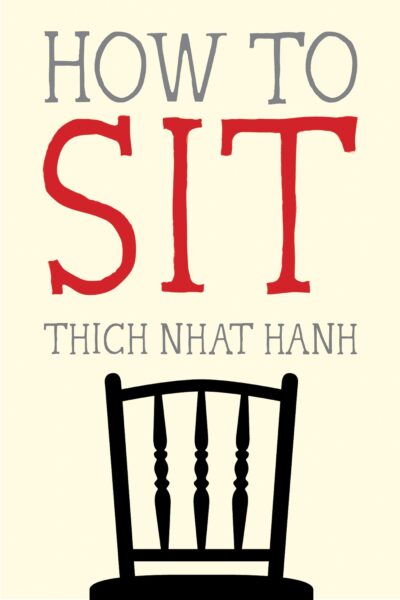Larry Yang: The Mindfulness Bell
By
Larry Yang — 2012
YOU MIGHT ALSO LIKE
CLEAR ALL
BY TEACHER
BY TYPE
FILTER

TOPIC
- Spiritual Practices (45)
- Awareness (42)
- Mindfulness Meditation (41)
- Dharma (32)
- Healing Approaches (31)
- Building Character (28)
- Psychology and Spirituality (24)
- Tibetan Buddhism (24)
- Compassion (23)
- Self-Development (23)
- Mind-Body Connection (22)
- Inner Life (19)
- Inner Peace (19)
- Self-Discovery (19)
- Presence (18)
- Self-Reflection Practices (18)
- Spiritual Life (18)
- Stress Management (17)
- Breathwork (16)
- Spiritual Growth (16)
- Happiness (15)
- Spiritual Awakening (15)
- Spiritual Development (14)
- Buddha Nature (13)
- Self-Healing (12)
- Zen Buddhism (12)
- Anxiety (11)
- Community Healing (11)
- Connection with Nature (11)
- Emotional and Mental Health (11)
- Self-Care (11)
- Suffering (11)
- Enlightenment (10)
- Focus (10)
- Intention (10)
- Leadership (10)
- Self-Actualization (10)
- Spiritual Direction (10)
- Transformation (10)
- Love (9)
- Self-Control (9)
- Spiritual Healing (9)
- Values (9)
- Black Well-Being (8)
- Gratitude (8)
- Honoring Emotion (8)
- Life Challenges (8)
- Science and Spirituality (8)
- Self-Compassion (8)
- Self-Realization (8)
- Well-Being (8)
- BIPOC Well-Being (7)
- Human Potential (7)
- Inner Strengths (7)
- Lovingkindness (7)
- Racial Justice (7)
- Women’s Well-Being (7)
- Work-Life Balance (7)
- Anger (6)
- Athlete Well-Being (6)
- Consciousness (6)
- Depression (6)
- Emotional Intelligence (EQ) (6)
- Empowerment (6)
- Forgiveness (6)
- Gender and Spirituality (6)
- Grit (6)
- Habits of Mind (6)
- Insight (Vipassana) Meditation (6)
- Integrative Medicine (6)
- Joy (6)
- Living with Illness (6)
- Self-Limiting Beliefs (6)
- Social Justice (6)
- Stress (6)
- Authenticity (5)
- Chronic Health Conditions (5)
- Communication Skills (5)
- Comparing Belief Traditions (5)
- Courage (5)
- Empathy (5)
- Energy Healing (5)
- Entrepreneurship (5)
- Female Empowerment (5)
- Freedom (5)
- Goal Setting (5)
- Guided Meditation (5)
- Habit Formation (5)
- Identity (5)
- Kindness (5)
- Naturopathy (5)
- Neuroscience (5)
- Perception (5)
- Positive Psychology (5)
- Racial Healing (5)
- Resilience (5)
- Self-Acceptance (5)
- Self-Reckoning (5)
- Self-Reliance (5)
- Trauma Healing (5)
- Yoga (5)
- Acceptance (4)
- Death and Dying (4)
- Ego (4)
- Facing Own Death (4)
- Functional Medicine (4)
- Grief (4)
- Illness and Injury (4)
- Imagination and Creativity (4)
- Journaling (4)
- Letting Go (4)
- Lovingkindness Meditation (4)
- Moral Philosophy (4)
- Motivation (4)
- Negative Self-Talk (4)
- Offering Support to Others (4)
- Parenting (4)
- Peak Performance (4)
- Positive Self-Talk (4)
- Prayer (4)
- Psychology (4)
- Relationship Challenges (4)
- Relationship with Time (4)
- Search for Purpose (4)
- Spirituality and Health (4)
- Spirituality and Politics (4)
- Vulnerability (4)
- Addiction Recovery (3)
- Aging (3)
- Anger Management (3)
- Brain Health (3)
- Cancer (3)
- Caregiver Well-Being (3)
- Chanting (3)
- Christianity (3)
- Compassion Meditation (3)
- Competition (3)
- Confidence (3)
- Connection (3)
- Curiosity (3)
- Decision Making (3)
- Ecospirituality (3)
- Fear (3)
- Finding Meaning (3)
- Growth Mindset (3)
- Healthy Eating (3)
- Interdependence (3)
- Karma (3)
- Loneliness (3)
- Passion (3)
- Personal Development (3)
- Positive Thinking (3)
- Productivity (3)
- Rebirth (3)
- Romantic Relationships (3)
- Sacred Feminine (3)
- Self-Love (3)
- Self-Worth (3)
- Storytelling (3)
- The Divine (3)
- Walking Meditation (3)
- Willpower (3)
- Work Challenges (3)
- Zen Meditation (3)
- Accepting Love (2)
- Access to Education (2)
- Activism/Service (2)
- Addiction (2)
- Awe (2)
- Body Scan Meditation (2)
- Burnout (2)
- Child’s Trauma (2)
- Cognitive Behavioral Therapy (2)
- Conscience (2)
- Conscious Evolution (2)
- Diamond Approach (2)
- Digital Life (2)
- Disconnection (2)
- Ego Dissolution (2)
- Epigenetics (2)
- Failure (2)
- Fellowship and Community (2)
- Forest Bathing (2)
- Friendship (2)
- Generosity (2)
- Goddess (2)
- Hinduism (2)
- Homeopathy (2)
- Indigenous Well-Being (2)
- Inflammation (2)
- Integrity (2)
- Intimacy (2)
- Jealousy/Envy (2)
- Kirtan Music (2)
- Life Force Energy (2)
- Longevity (2)
- Marriage (2)
- Memoir (2)
- Men’s Well-Being (2)
- Mythology (2)
- Philosophical Approaches (2)
- Play (2)
- Poetry (2)
- Problem Solving (2)
- Quantum Physics (2)
- Racial Discrimination (2)
- Racism (2)
- Relationship with Money (2)
- Rest (2)
- Self-Discipline (2)
- Setting Limits and Boundaries (2)
- Shame (2)
- Sleep Disorders (2)
- Social Responsibility (2)
- Soul Mission (2)
- Spiritual Quest (2)
- Trust (2)
- Visualization (2)
- Work Relationships (2)
- AAPI Well-Being (1)
- Abandonment (1)
- ADD/ADHD (1)
- Affirmations (1)
- Alcohol Addiction (1)
- Alexander Technique (1)
- Altered States (1)
- Animal Connection (1)
- Autoimmune Disease (1)
- Ayurveda (1)
- Belonging (1)
- Boundary Confusion (1)
- Celibacy (1)
- Channeling (1)
- Children’s Well-Being (1)
- Christian Mysticism (1)
- Clairvoyance and Precognition (1)
- Climate Change (1)
- Conflict Resolution (1)
- Creative Well-Being (1)
- Cross-Cultural Dynamics (1)
- Dark Night of the Soul (1)
- Death or Loss of a Loved One (1)
- Death or Loss of a Parent (1)
- Diet and Nutrition (1)
- Divination Systems (1)
- Divorce and Breakup (1)
- Ego Transcendence (1)
- Endurance (1)
- Environmental Justice (1)
- Family Dynamics (1)
- Gender Justice (1)
- Genetics (1)
- Guided Imagery (1)
- Guilt (1)
- Handling a Loved One’s Illness (1)
- Higher Calling (1)
- Humility (1)
- Incarceration (1)
- Inner Child (1)
- Intuition (1)
- Judaism (1)
- Kids and Sports (1)
- LGBTQIA Sexuality (1)
- LGBTQIA Well-Being (1)
- Lifestyle Medicine (1)
- Manifestation (1)
- Mantra Meditation (1)
- Masculine/Feminine Dynamics (1)
- Mental Health Challenges (1)
- Midlife Crisis (1)
- Native American Beliefs (1)
- Near-Death Experience (1)
- Neurodiversity (1)
- Neuroplasticity (1)
- Non-Duality (1)
- Oneness (1)
- Othering (1)
- Past Lives and Reincarnation (1)
- Patience (1)
- Personality Typing (1)
- Physical Health (1)
- Postpartum Depression (1)
- Pregnancy and Childbirth (1)
- Reiki (1)
- Religious Experience (1)
- Ritual (1)
- Runes (1)
- Sexual Assault or Abuse (1)
- Sexuality (1)
- Sleep (1)
- Somatic Experiencing (1)
- Speaking Your Truth (1)
- Sutras (1)
- Tarot (1)
- Traditional Chinese Medicine (1)
- Transgender Well-Being (1)
- Trauma (1)
- Unconscious Bias (1)
- Unfulfilled Career (1)
- Unity (1)
- Visions and Hallucinations (1)
- War (1)
- Work Ethic (1)
- Yoga Therapy (1)
- Youth Activism (1)
FILTER

TEACHER
- Yongey Mingyur Rinpoche (11)
- C. S. Lewis (8)
- Bhikku Anālayo (7)
- Buddha (7)
- Scott Shute (7)
- Sylvia Boorstein (7)
- Joseph Goldstein (6)
- Reginald Ray (6)
- Andy Puddicombe (5)
- Chan Khong (5)
- Chögyam Trungpa (5)
- Miles Neale (5)
- Pema Chödrön (5)
- Shauna Shapiro (5)
- Tara Brach (5)
- Amishi Jha (4)
- Jack Kornfield (4)
- Martin Luther King Jr. (4)
- Norman Fischer (4)
- Bernie S. Siegel (3)
- Daniel J. Siegel (3)
- don Miguel Ruiz (3)
- Ellen Langer (3)
- Gaylon Ferguson (3)
- Joanna Macy (3)
- Luisah Teish (3)
- Mirabai Bush (3)
- Ruth Denison (3)
- Sandy Boucher (3)
- Sharon Salzberg (3)
- A. H. Almaas (2)
- Ashley Neese (2)
- Charles Johnson (2)
- Charlotte Joko Beck (2)
- Daniel Goleman (2)
- Debbie Ford (2)
- Deepak Chopra (2)
- Diane Stein (2)
- don Jose Ruiz (2)
- Elizabeth Stanley (2)
- Jacqueline Carter (2)
- Jan Willis (2)
- Jay Shetty (2)
- Jetsunma Tenzin Palmo (2)
- Joan Halifax (2)
- Krishna Das (2)
- Larry Dossey (2)
- Lodro Rinzler (2)
- Louise Hay (2)
- Mark Epstein (2)
- Mark Manson (2)
- Martin Seligman (2)
- Matthieu Ricard (2)
- Noah Levine (2)
- Pema Khandro (2)
- Pierre Teilhard de Chardin (2)
- Ram Dass (2)
- Rick Hanson (2)
- Rolf Gates (2)
- Rudolph Ballentine (2)
- Rumi (2)
- Ruth King (2)
- Stephan Bodian (2)
- Tony Robbins (2)
- Amit Goswami (1)
- Amy Morin (1)
- Amy Scher (1)
- Andrew Harvey (1)
- Andrew Weil (1)
- angel Kyodo williams (1)
- Arianna Huffington (1)
- bell hooks (1)
- Brené Brown (1)
- Brian Tracy (1)
- Chalene Johnson (1)
- Charles Tart (1)
- Chip Conley (1)
- Cyndi Dale (1)
- Daisaku Ikeda (1)
- Daniel Amen (1)
- Danielle MacKinnon (1)
- David Steindl-Rast (1)
- Deena Metzger (1)
- Donna Jackson Nakazawa (1)
- Dorothy Day (1)
- Edgar Cayce (1)
- Elisa Shankle (1)
- Elizabeth Gilbert (1)
- Elizabeth Mattis Namgyel (1)
- Eric Maisel (1)
- Ervin László (1)
- Evelyn Underhill (1)
- Frank Ostaseski (1)
- Frans Stiene (1)
- Gabor Maté (1)
- Gary Gach (1)
- Huston Smith (1)
- J. Krishnamurti (1)
- Jack Canfield (1)
- Jacqui Lewis (1)
- James Baraz (1)
- James Hillman (1)
- JoAnna Hardy (1)
- John C. Parkin (1)
- John Welwood (1)
- Joseph Campbell (1)
- Joseph M. Marshall III (1)
- Judith Orloff (1)
- Kamilah Majied (1)
- Kate Johnson (1)
- La Sarmiento (1)
- Lama Rod Owens (1)
- Lama Tsultrim Allione (1)
- Larry Ward (1)
- Leah Guy (1)
- Lorin Roche (1)
- Marc Ian Barasch (1)
- Marie-Nathalie Beaudoin (1)
- Martha Beck (1)
- Mary Oliver (1)
- Matt Kahn (1)
- Michael A. Singer (1)
- Michael Bernard Beckwith (1)
- Myokei Caine-Barrett (1)
- Naomi Shihab Nye (1)
- Philip Goldberg (1)
- Phillip Moffitt (1)
- Queen Afua (1)
- Rami Shapiro (1)
- Raymond Buckland (1)
- Rhonda Magee (1)
- Rick Fields (1)
- Robert Augustus Masters (1)
- Roberto Assagioli (1)
- Roger Walsh (1)
- Roxanne Dault (1)
- Rupert Sheldrake (1)
- Sally Kempton (1)
- Sarah Powers (1)
- Shunryu Suzuki (1)
- Sister Jenna (1)
- Stephanie Rose Bird (1)
- Stephen Levine (1)
- Stephen Mitchell (1)
- Sue Morter (1)
- Tal Ben-Shahar (1)
- Ted DesMaisons (1)
- Thomas Moore (1)
- Toni Bernhard (1)
- Wendell Berry (1)
- Will Cole (1)
- Wim Hof (1)
- Zindel Segal (1)










 Since in order to speak, one must first listen, learn to speak by listening.
Since in order to speak, one must first listen, learn to speak by listening.
